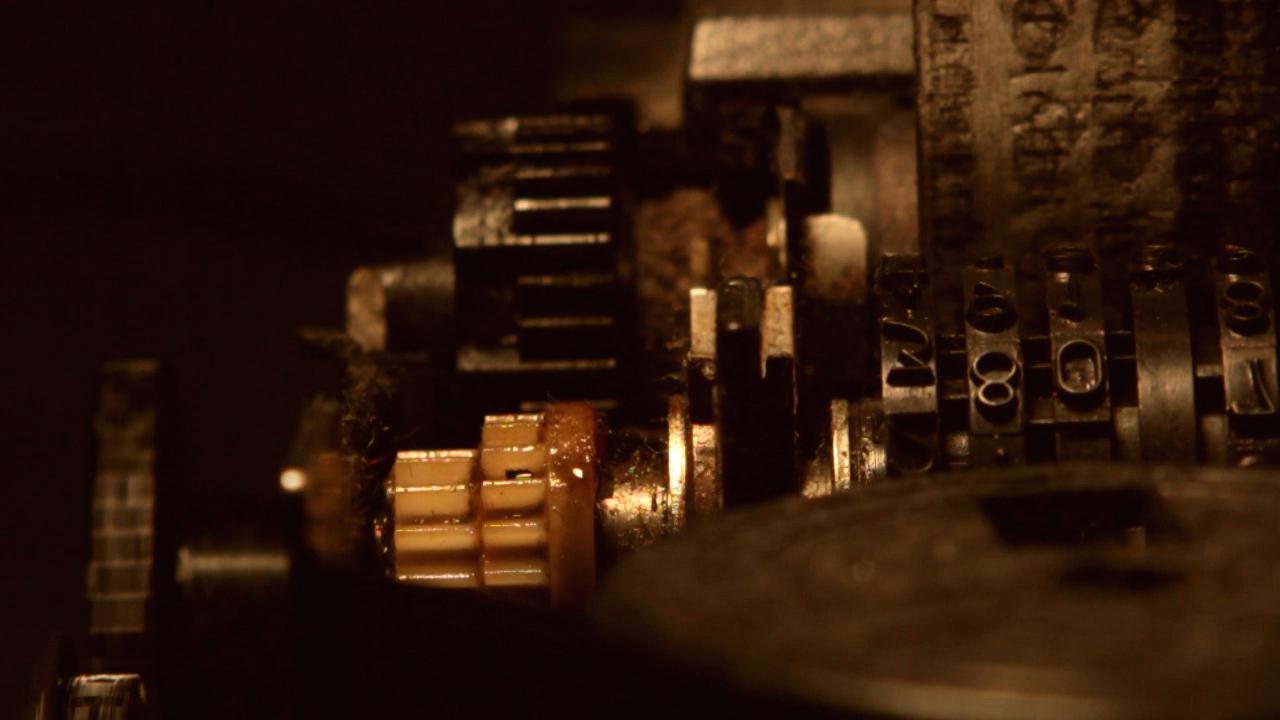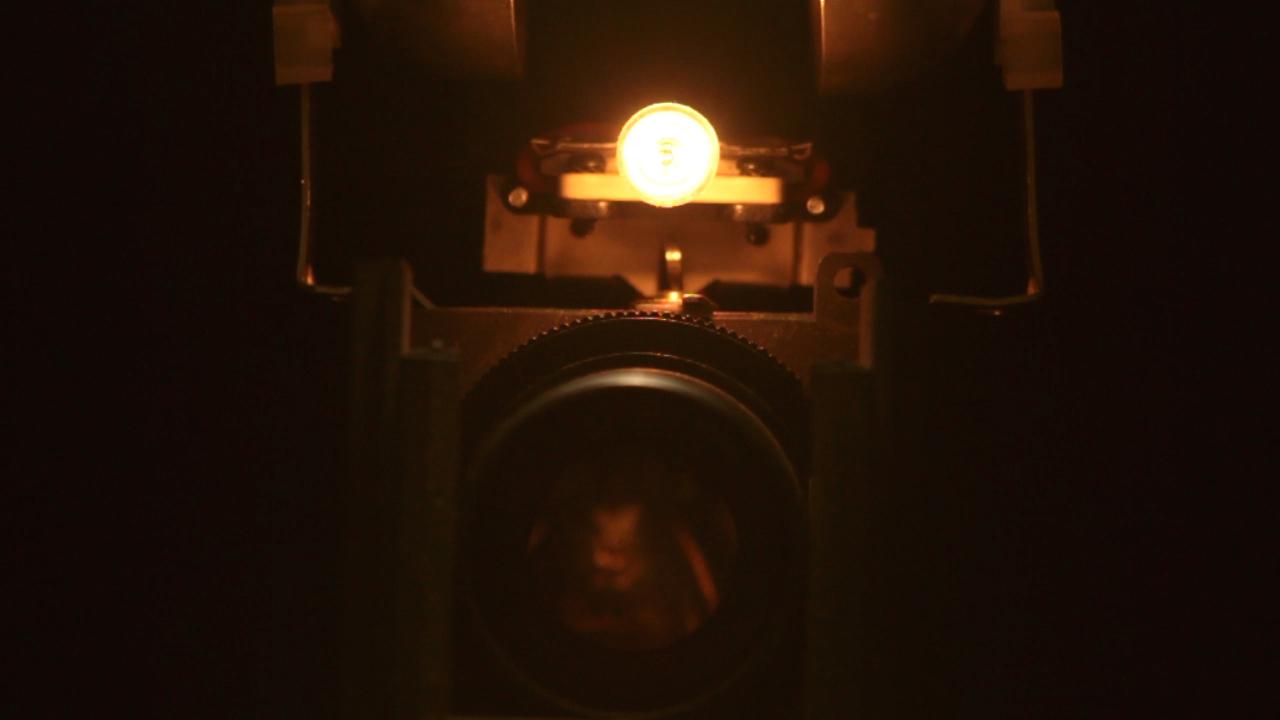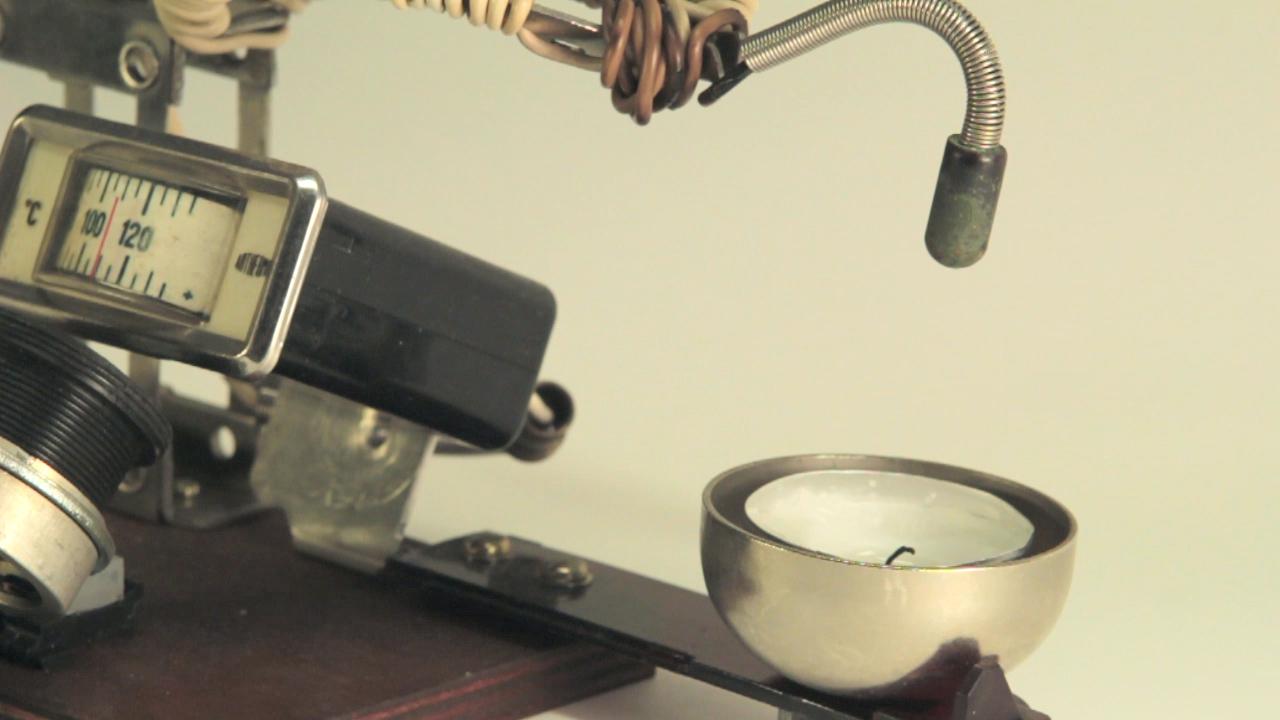Machines
In the warm light of a glowing filament the moving machine parts resemble spools, wires and gearwheels. A turntable with a numerical scale spins slowly and shows various readings, though their significance is never revealed. Details, parts of which are out of focus, appear on a black background, and in them the filmmaker and graphic artist Jeremias Altmann shows fragments of four machines he constructed of discarded household appliances. After initial silence the metallic clattering and roar of the mechanism gets louder. Rows of illegible numbers are hammered onto a roll of paper. Views of a dead moth complete the series of macro shots. Viewers are not shown a full view of the machinery or what it’s producing. When the machines stop their operations abruptly, the color temperature changes to cold white, and everything goes silent. This is followed by a second series of partial views of the now motionless machines, in bright neon light, though this doesn’t help clarify matters, producing the opposite effect instead. Questions arise about the function of the individual parts, such as what a spark plug, lamps, cables, metal springs, etc., might do together, how they are related, and which mechanical laws apply here.
Altmann doesn’t draw out the machines’ secret. He’s not interested the electromechanical devices’ practical use, but their aesthetic and acoustic qualities. The idea of machines as efficient tools is taken to the absurd. His machines are given their raison d’être not by logical, rational circumstances of production, but on the basis of their mere appearance and tonal characteristics. In his video study Altmann works in a way similar to the design principle of machines that have no specific purpose: First, he breaks them down to individual audiovisual elements by means of macroscopic shots, and then reassembles them to create a whole that’s as mysterious as it is poetic. (Norbert Pfaffenbichler)
Translation: Steve Wilder
Machines
2015
Austria
4 min



